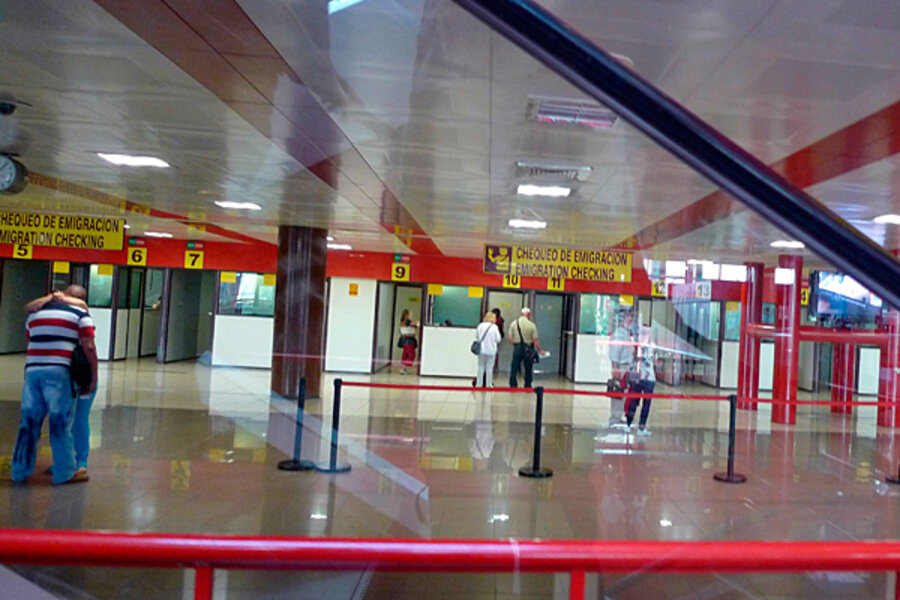End of the exit visa in Cuba?
Loading...
• A version of this post ran on the author's blog, thehavananote.com. The views expressed are the author's own.
After literally years upon years of rumors that the Cuban government was planning to implement migration reforms, today, finally it did indeed publish significant changes to Cuba's migration law in the Gaceta Oficial. After several years of economic reforms, some of which came ever so slowly and others of which seemed to cycle out rather quickly, such as new rules for property sales, these changes to Cuban migration law represent the first substantial political reform enacted by Raul Castro's government.
On the one hand, this is a huge step forward for both the Cuban government and the Cuban population. The elimination of the 'tarjeta blanca,' or white card policy – which required Cubans to be invited abroad and receive authorization to go, and the new broad right to a passport – represents a new level of trust that hasn't existed between the Cuban population at large and its government in many years. The new migration policy also doubles the time a Cuban may live abroad without relinquishing citizenship (and possessions left behind) to two years, and then after that, one must seek additional months at a Cuban consulate.
On the other hand, there are several caveats, some obvious and innocuous, and others that, depending on how broadly they are used by authorities, still mean that several categories of Cubans may not benefit from these changes, or will at the very least, have to wait to benefit. Those Cubans include those who have civil or other obligations, such as mandatory military service (something not required in the US, but required in other countries, one example being Israel). Then there are those whose departure - particularly en masse - could cause a serious brain drain in a country that invests substantial resources in and highly values its human capital particularly in social, medical and scientific fields. That means doctors will still need to serve the population (or in places like Venezuela) before emigrating. And here there is a reference to the US policy of offering Cuban doctors the opportunity to immigrate to the US from wherever they may be posted abroad. I've heard the Cuban doctors abroad program described as either a conscription where the doctor has no choice or as a volunteer-with-extra-pay assignment. The US considers it a conscription, and will admit any Cuban doctor who reports he or she has been conscripted into service abroad. The Cuban government considers the US immigration policy toward its doctors to be a full-scale effort to rob Cuba of its qualified and necessary workforce.
But the most crucial exclusions are for national security and public interest - these could leave a lot of room for interpretation. A highly visible test of these exclusions will be the next time Yoani Sanchez wants to go abroad. The Cuban government may keep her grounded and use a familiar refrain about Ms. Sanchez and her ilk being created and funded by foreign entities bent on the destruction of the Cuban state; or, and this would be the more strategic choice, one demonstrating a deeper commitment to freedom to travel, just wave her on through. It's not hard to imagine, after all, that the Cuban government's harassment of Sanchez has helped fuel the international interest in her affairs.
The vast majority of Cubans will not find themselves caught in one of these exclusionary categories, and I expect that we're going to see those with money, or with family abroad who will pay for their trip, taking advantage of this welcome change. This will of course complicate matters for US officials who will have to consider many, many more temporary entry visa requests. I expect it will cause the US to renew its request for more visa officers in Havana - or at least publicly - which will cause Havana to request reciprocity in Washington, at which point everything will gum up as it often does. Over the last couple of years, the US appears to be keeping its promise to halt any further progress on bilateral relations until Cuba releases Alan Gross from a Cuban military hospital where he is serving out a 15-year prison sentence.
Normally, if the United States' priorities were to have some sort of positive impact on the ground in Cuba, it might be a good idea to react with cautious optimism over these migration reforms and take steps within our power to encourage its broad use. But with the administration's back up against the wall over its failure to secure the release of Alan Gross, and just weeks before a US presidential election, in which the media insist that Florida's electoral votes remain pivotal, I doubt there will be much enthusiasm in Washington for Cuba's new migration law. There's a certain irony in that, given that Cuban Americans in Florida are precisely who will welcome this first big step forward toward the reunification of the Cuban family.
--- Anya Landau French blogs for The Havana Note, a project of the "US-Cuba Policy Initiative,” directed by Ms. Landau French, at the New America Foundation/American Strategy Program.







